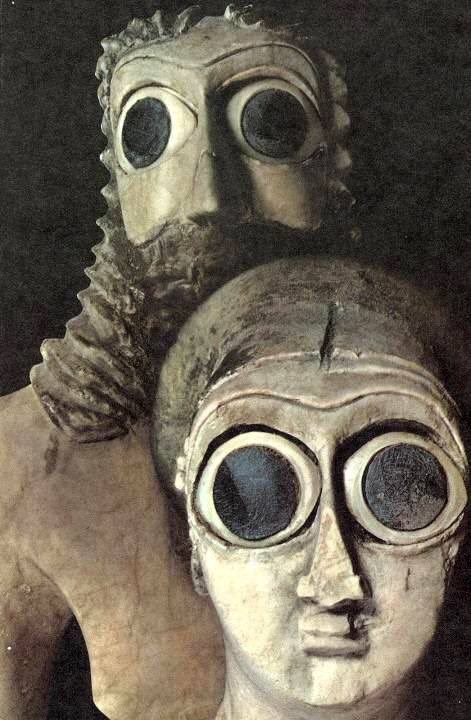
Marriage is necessarily a stabilization and anchoring of the spirit. It is a calcification, a stiffening of the soul. In an honest marriage, man must necessarily kill some part of his dynamism, gently smothering that portion of himself that is still wild and unchained, holding the pillow to its face until it no longer thrashes and kicks its legs. You must become dependable, reliable, routine. You must become immobile earth, upon which a tree may grow. With every step towards marriage, and every step beyond, the entrenchment increases, and one becomes more and more lithic, as though caught in Medusa’s gaze. In effect, one may truly be caught in the gaze of a Gorgon. He is, at least, caught in the gaze of her.
Calcification begins at the point of moving in. What were once two distinct lives, two opposing forms of habit, clash, and one must necessarily supersede the other. Irrational habits are what build dynamism, what makes one oneself, one vital, one a personality. Irrational habits also cannot survive when confronted with routine and rationalism. Cohabitation places one under the constant watch of his other. Under the eye of the other, one must face the cruel violence of embarrassment, the violence which destroys all gaiety and passion. Like a prison warden, the other imposes routine upon the abode, which is now turned into a prison, and its inhabitant, who is now turned into a prisoner. At this point, the dwelling can no longer be referred to as an abode, a term which implies a sense of comfort, and instead must be called a domicile, a place in which the spirit is domesticated, the animal tamed, and the savage civilized.
The calcification is then formalized through the institution of marriage. One is now spiritually conjoined to the other, and in the Western tradition, this conjunction even contaminates the name through the adoption of the last name. The other is now called by your last name, as though an inescapable appendage, surgically attached to one’s flank. Even worse is the increasingly common practice of joint surnames. In this case, it is no longer discernible which in this union is the appendage. Perhaps both become appendages, each half of what they once were. Nonetheless, through the legal institution of marriage, one is now penalized for attempting to seek the surgical removal of this appendage which now encumbers his spirit. For the crime of excision, one is subject to the violence of litigation, culminating in the splitting of assets, the process of demarcation of two opposing states at the negotiating table after a long and grueling war.
The ultimate and final calcification, in which one becomes practically irreversibly ossified, occurs in childbirth. The birthing and raising of a child necessitates the complete destruction of all dynamism, of all spontaneity, and of all unpredictability. One cannot be a successful, ethical parent without responsibility. Oh that dreaded responsibility! We find it very easy to neglect ourselves, we don’t care what happens to us. A man alone may throw all caution to the wind, let himself fall and trust in God-knows-what to catch him, but when he has a wife, a family, especially children, that he is held responsible to, he must necessarily dispose of his daredevil attitude, that animalistic craving for something else, something new, and resign himself to reliability, responsibility, to the routine. In order to fulfill one’s obligation to his children, in order to ensure their successful rearing, he must end his animalism, he must finally slay his free beast.
There is one solace, that as one’s children grow, they begin to develop their own personalities, their own animalisms, their own dynamisms. Through the nurturing of their vitality, one may vicariously experience one’s own vitality. Their achievements, the mountains they climb, the foes they fell, the difficulties they overcome, and the triumphs they accomplish, become your own. The produce of one’s loins has the ability, when brought up correctly, to bring immense pride and satisfaction to one’s life. And so it becomes apparent that one must become the inanimate soil in which his children can extend their roots, and be that stable platform from which they grow forth, allowing them to reach upward into the heavens.

Leave a Reply